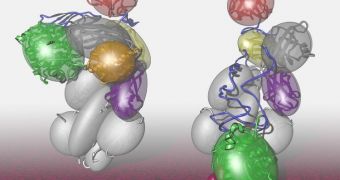Researchers from an international collaboration that included the Uppsala University announce the discovery of a new molecule that could be used as a basis for a rapid, inexpensive and precise diagnostic method for autism spectrum disorders.
ASD includes autism, Asperger's syndrome, Heller's syndrome (also known as disintegrative disorder) and atypical autism. All of these neuropsychiatric disturbances influence reciprocal social interaction, reciprocal verbal and non-verbal communication, and imagination and behavior.
Experts have been trying to figure out how to detect these conditions on time for many years, but their efforts have largely been in vain until now. In the new study, investigators figured out that complement factor C3 protein can be used as an indicator for ASD.
There are numerous conditions that stem from minor or major modifications to some of the proteins in the human body, and it could be that all diseases in the autism spectrum make no exception to this rule, Science Blog reports.
In order to identify the molecules, investigators used a research technique called advanced mass spectrometry to analyze very small blood samples. Details of how the approach works appear in the latest issue of the esteemed scientific journal Nature Translational Psychiatry.
At this point, there are no biomarkers available for autism and other ASD, which means that the new study may have brought a ray of hope where there was none before. The Uppsala group worked with colleagues from the Linnaeus University (Sweden) and the Faculty of Medicine, in Teheran, Iran.
The group focused on disruptions of the human nervous system during this study. While analyzing blood samples from ASD children (as compared to samples from non-ASD kids), they found several peptides containing C3 fragments. This protein usually acts as part of the immune system.
Scientists now want to use the data they obtained from the new investigation to develop a reliable blood-based diagnostic tool. In addition, they want to conduct the study again, this time with more children involved. Their research was made possible by funds from the Swedish Research Council.

 14 DAY TRIAL //
14 DAY TRIAL //